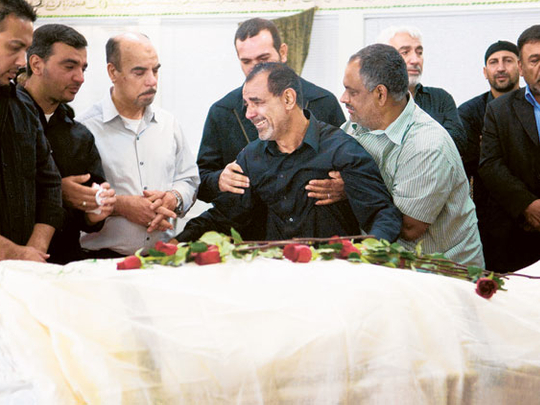
Lakeside, California: The husband of an Iraqi-American woman who was found bludgeoned to death with a threatening note beside her made his first public remarks on Tuesday and demanded to know what motivated her killer.
Qasim Al Humaidi addressed reporters at a mosque east of San Diego after a memorial service for 32-year-old Shaima Al Awwadi. "The main question we would like to ask is what are you getting out of this and why did you do it?" Al Humaidi said in Arabic as his 15-year-old son Mohammad translated.
Al Humaidi urged anyone with information to contact law enforcement and thanked the Iraqi government for flying his wife's body to Iraq. He declined to answer reporters' questions after making brief remarks.
Shaima, a mother of five who volunteered at her mosque, was taken off life support on Saturday, three days after her teenage daughter found her unconscious in the dining room of the family home in El Cajon, one of the nation's largest enclaves of Iraqi immigrants. Her daughter told a television station that the note said: "Go back to your country, you terrorist."
Possible hate crime
El Cajon police have declined to disclose the contents of the note but said say it has led investigators to regard the killing as a possible hate crime. Chief James Redman said on Monday there was other evidence and called the killing an isolated incident.
Salam Al Marayati, president of the Muslim Public Affairs Council, said it would be irresponsible to jump to conclusions. He spoke with reporters at the mosque after meeting with the police chief and getting assurances from the FBI and the Department of Homeland Security that they were committed to solving the crime.
"We don't know the facts of this case," Al Marayati said. "We don't know if it's a hate crime. We don't know if it's not a hate crime."












